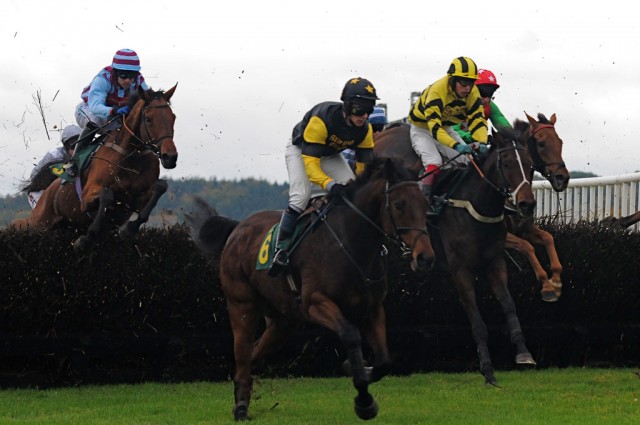Horse trainer Rick Dutrow made national headlines when the three-year old colt named Big Brown convincingly won the 2008 Kentucky Derby and the Preakness Stakes. Based on Big Brown’s dominance, it was widely expected that the colt would be the next Triple Crown winner. But the specter of steroids reared its ugly head as it was reported that Dutrow administered anabolic steroids to Big Brown.
Steroids were permitted with few restrictions in horse racing in 2008 but the stigma associated with steroids in professional sports hurt the reputation of Dutrow considerably. In response to the public outcry, Dutrow discontinued Big Brown’s steroid protocol prior to the Belmont Stakes. Big Brown, likely suffering from androgen-induced hypogonadism upon the discontinuation of steroids, failed to live up to expectations and was the last horse to cross the finish line in Belmont Park.
Dutrow was still highly regarded as one of the best horse trainers in the business. His reputation did not suffer among the owners of prized race horses. He continues to train top horses up until the present-day. He currently trains 10 horses at IEAH Stables, which owned Big Brown in 2008.
While the general public has demonized Dutrow as a trainer that dopes his horses with steroids, he has apparently never violated racing rules regarding steroids. And while it is often incorrectly reported that steroids are banned in horse racing, this is not the case. The therapeutic use of specific anabolic steroids is permitted with certain restrictions.
The Racing Medication and Testing Consortium (RMTC) allows the use of the anabolic steroids Testosterone, Equipoise (boldenone undecylenate), Winstrol Depot (stanozolol) and Deca Durabolin (nandrolone decanoate) for therapeutic purposes in race horses. The RMTC’s model rule only requires the discontinuation of steroids for a 60-day window prior to racing competition. In-competition urine testing is conducted to confirm that steroids levels are below a certain threshold on the day of the race. The RMTC rules have been adopted in practically every major thoroughbred racing state.
While Dutrow’s administration of steroids may have been permitted, regulators could not ignore Dutrow’s history of other racing violations that did not involve anabolic steroids.
The Kentucky Horse Racing Commission’s Licensing Review Committee refused to renew Dutrow’s license citing seven violations of Kentucky’s racing law. Most of the violations involved administrative violations. However, some violations involved the inappropriate or banned administration of non-steroidal therapeutic medications such as the diuretic furosemide and phenylbutazone.
The New York Racing and Wagering Board has also suspended Dutrow for his connection to the administration of additional non-steroidal drugs that included the synthetic opioid butorphanol and the sedative xyzaline.
Dutrow has denied wrongdoing in both cases and is currently appealing his 10-year ban in Kentucky. Pending the appeal, Dutrow’s horses are permitted to race. These include Zetterholm who is entering the 2012 Preakness Stakes on May 19, 2012. In the meantime, Dutrow and his steroid past will continue to make headlines.

Photo credit: Paolo Camera / flickr
Source:
Markus, D. (May 17, 2012). Rick Dutrow is fighting steroid allegations as 20-1 shot Zetterholm battles for recognition. Retrieved from http://www.bellinghamherald.com/2012/05/17/2526445/rick-dutrow-is-fighting-steroid.html#storylink=cpy

